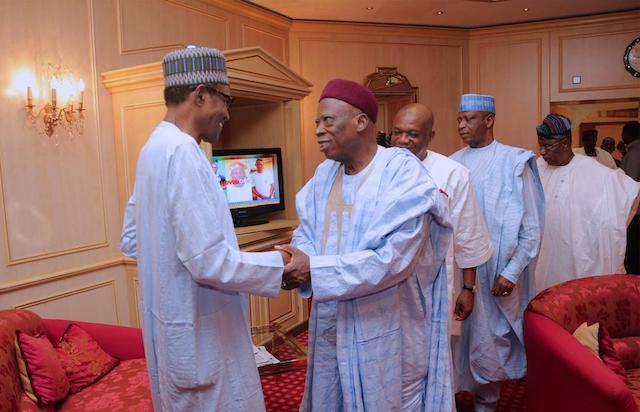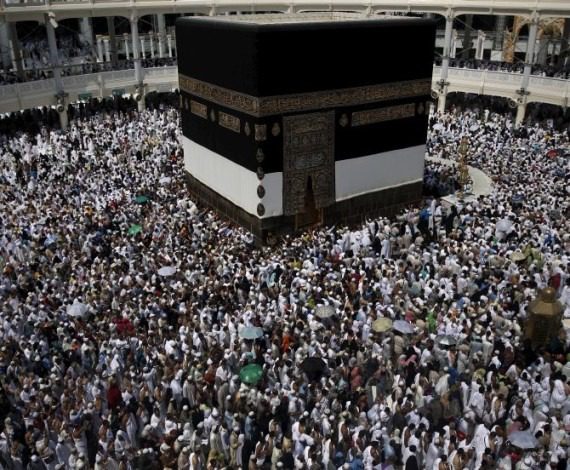Political Issues
Reconfiguration of the Political Landscape -By Jibrin Ibrahim


Finally, the great political tsunami foretold so many times took place on Tuesday or didn’t it? The scenario had been carefully planned over the past two years, that all the governors and legislators opposed to President Buhari’s second term would vacate the ruling All Progressives Congress (APC) en masse, carry the majority to another party and disgrace the president by leaving him with a minority. On that morning, the APC government proved to all and sundry that it took the threat seriously as the leader of the tsunami, Senate President Saraki was called for an early morning appointment with the police and when they did not see him, they apparently carried out a raid on his house and that of the deputy Senate president. President Buhari himself had abandoned his aloof and taciturn nature and become a lively politician speaking with charm and affection to all his political enemies in the party, seeking to convince them they are all well-loved in the APC and should stay. As the crisis had been brewing over the last three years, the question is, why wait till these political actors were at the departure gate before seeking to show them love?
The number of the decampees on Tuesday has appeared clear – 14 senators and 37 members of the House of Representatives. The Senate president and speaker have not signed up as defectees, possibly waiting for a better day. For clarity on the implications, I turned to the press of Wednesday morning. Punch was very clear in its headline: “PDP 55, APC 50 Senators”, hence APC was now the minority party in Senate. For assurance, I looked at The Guardian and the screaming headline was that, “PDP Takes Control of Senate”; so clearly the tsunami had worked. Just to be sure, I looked at The Nation and its headline was: “APC Keeps Majority”, so clarity was not coming from the press.
Later that evening, the president, still very much in campaign mood, held a meeting with the APC senator’s caucus in the Villa and I was surprised to see Senator Shehu Sani of Kaduna there, the serial announcer of leaving APC was prominent in the photos and later gave an interview on BBC Hausa Service on how beloved Comrade Adams Oshiomhole, the party chairman, was succeeding in his reconciliation moves and bringing justice and sanity back to the APC. Then Senator Lanre Tejuoso of Ogun State, who had defected the previous day, became the prodigal son who assured an all-smiling President Buhari that: “your son has returned home”. For clarity on the numbers, we may have to await the resumption of the National Assembly in September.
The comedy continued with Governor Ortom of Benue State, who announced that he was en route to a reconciliation meeting with his APC party in Abuja but was waylaid by a mega coalition of youth organisations at the gate of the Governor’s Lodge, who told him that the love of his people has shifted from the APC to the PDP. As one who listens to the desires of his people, he promptly defected. I could not but wonder however, why he has refused to listen to his people as they have been telling him repeatedly that they would love to have their one-year backlog of salaries paid. Apparently, love does not extend to money matters.
Over and beyond the melodrama in Abuja on Tuesday morning, all democrats should be seriously concerned about the apparent attempt to use security forces to organise a “coup” against the Senate leadership. The script is well known to Nigerians because it had been played many times in the past. On the day of the planned tsunami, suddenly, the police wanted to interrogate the Senate president in their office about his purported involvement in an armed robbery in Offa and the Economic and Financial Crimes Commission (EFCC) suddenly discovered they needed to search Deputy Senate President Ekweremadu’s house that morning on the suspicion of conspiracy, abuse of office and money laundering. With the Senate leadership in the hands of security operatives, the much talked about plan would then move to phase two when persons loyal to President Buhari would try to take over the leadership of the Senate. According to reports, the platters from the Senate, reportedly led by the Senate majority leader, Ahmed Lawan, had planned to use the vacuum expected to be created by the absence of the Senate presiding officers to invoke the Senate Rules to appoint a Senate president pro-tempo, paving the way for the sacking of the two principal officers. As it turned out, the Senate president was not barricaded in his house as had been assumed but had slipped unnoticed into the Chambers and with his presence the plot collapsed. Every president who allows the security agencies act in a partisan manner to attack their opponents diminish themselves in the eyes of democrats and threaten the consolidation of democracy.
It’s difficult to assess the impact of the defection of legislators. What we have known since 2003 is that at each election, 70 to 80 per cent of legislators at all levels are thrown out. The reason is simple: State governors always seek to recycle legislators because of the fear that ranking members would begin to generate independent political strength of their own and might begin to think of the unthinkable – stop being poodles of the governors. Most of those who defected did so because they know their statuses with their governors. This practice has been a major stumbling block in the consolidation of parliamentary democracy because with each new cycle, the learning process in the legislatures begins again from zero. It’s not at all clear whether defection would save these defectors from their parties.
The process of political configuration for the 2019 elections would intensify over the next six weeks as party primaries hold. In the next two weeks, it would become clearer whether the APC has harmed itself by allowing internal party crisis in many states to fester. We do not yet know what the impact of this week’s defections would be as Buhari has a cult following in the North-East and North-West, who might stick with him in spite of the insecurity and hunger in the land. What is clear at this time is that he has lost much of the support he had in key Middle Belt States such as Benue, Plateau and Taraba, which would certainly affect his numbers. When the PDP presidential candidate emerges, it would become easier to see whether the contest against Buhari would be robust. In a sense, the South-West might be the final arbiter in terms of who wins the elections and the president’s problem is that he has been dismissive of their core political demand of restructuring.
A professor of Political Science and development consultant/expert, Jibrin Ibrahim is a Senior Fellow of the Centre for Democracy and Development, and Chair of the Editorial Board of PREMIUM TIMES.




















